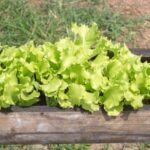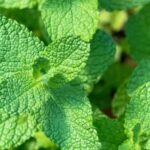Are you considering using cypress mulch in your vegetable garden but unsure if it’s the right choice? In this article, we will explore the use of cypress mulch in vegetable gardens and provide a comprehensive guide on its benefits, potential concerns, and best practices for application.
Cypress mulch has been widely used for gardening and landscaping due to its numerous benefits, such as weed suppression, moisture retention, and temperature regulation. However, there are also concerns about the sustainability of cypress trees and their impact on the environment. Despite these concerns, many gardeners still swear by the effectiveness of cypress mulch in vegetable gardens.
When it comes to choosing the right type of mulch for your vegetable garden, it’s important to weigh the pros and cons of each option. In this article, we will delve into the specific benefits of using cypress mulch in vegetable gardens and address any potential issues that may arise from its use.
Whether you’re a seasoned gardener or just starting out with your vegetable garden, understanding the ins and outs of using cypress mulch is essential for making informed decisions about your gardening practices.
Benefits of Using Cypress Mulch in Vegetable Gardens
Cypress mulch is an excellent option for vegetable gardens due to its many benefits. Here are some reasons why using cypress mulch can be advantageous for your vegetable garden:
1. Natural Pest Repellent: Cypress mulch contains natural oils and compounds that act as a deterrent to pests such as termites, ants, and other insects that may harm your vegetables.
2. Moisture Retention: One of the key benefits of cypress mulch is its ability to retain moisture in the soil. This can be particularly helpful during hot summer months or in dry climates, where water conservation is important for healthy plant growth.
3. Weed Control: Cypress mulch forms a dense layer on the soil surface, which helps to prevent weed growth by blocking sunlight and inhibiting weed seed germination.
Overall, the use of cypress mulch in vegetable gardens offers a range of benefits that can contribute to healthier and more productive plants. With its natural pest-repellent properties, moisture retention capabilities, and weed control features, cypress mulch can be a valuable addition to any vegetable garden.
Potential Concerns About Cypress Mulch in Vegetable Gardens
Cypress mulch has gained popularity as a type of mulch for vegetable gardens due to its many benefits, such as its resistance to decay, ability to repel pests, and attractive appearance. However, there are also potential concerns about using cypress mulch in vegetable gardens that gardeners should be aware of.
One concern about cypress mulch is its impact on the environment. Cypress trees are slow-growing and take a long time to reach maturity, which makes their use as mulch unsustainable if not harvested responsibly. Additionally, the logging of cypress trees can lead to habitat destruction for wildlife and loss of biodiversity in wetland areas where cypress trees often grow.
Another potential concern with cypress mulch is its acidity. Cypress mulch has a natural acidity that can alter the pH of the soil over time, which may not be suitable for certain types of vegetables that prefer neutral or alkaline soil. This can affect the growth and productivity of vegetable plants in the long run if not properly managed.
Despite these concerns, many gardeners still choose to use cypress mulch in their vegetable gardens due to its benefits. By being mindful of these potential issues and taking proper precautions, it is possible to use cypress mulch responsibly in vegetable gardens without causing harm to the environment or negatively impacting plant growth.
| Potential Concerns | Impact |
|---|---|
| Environmental impact | Habitat destruction and loss of biodiversity |
| Soil acidity | Alters pH levels which may affect certain vegetables |
Tips for Properly Using Cypress Mulch in Vegetable Gardens
Cypress mulch is a popular choice for gardeners looking to improve the health and appearance of their vegetable gardens. When used properly, cypress mulch can provide numerous benefits to your vegetable plants. However, it is important to follow some tips for using cypress mulch in your vegetable garden to ensure that you get the best results.
Proper Application
When applying cypress mulch to your vegetable garden, it’s important to apply a layer that is about 2-3 inches deep. This will help suppress weed growth and retain moisture in the soil. Be sure to leave a few inches of space around the base of each plant to prevent the mulch from covering the stems or crowns.
Regular Maintenance
To get the most out of cypress mulch in your vegetable garden, it’s essential to regularly maintain the mulch layer. Check for any signs of compaction or matting, and fluff up the mulch as needed to allow air and water to penetrate. Additionally, be mindful of any signs of mold or mildew, and remove any affected areas promptly.
Frequent Inspection
While cypress mulch can be beneficial for your vegetable garden, it’s important to monitor its impact on your plants. Keep an eye out for any signs of pests or diseases that may be attracted to the mulch. If you notice any issues, consider adjusting the thickness of the mulch layer or switching to a different type of mulching material.
Overall, when used properly following these tips and guidelines, cypress mulch can be a great addition to your vegetable garden. By maintaining regular inspections and proper application techniques, you can enjoy the numerous benefits that cypress mulch has to offer without encountering any major concerns or issues.
Comparison of Cypress Mulch With Other Types of Mulch for Vegetable Gardens
When it comes to choosing the right mulch for your vegetable garden, it’s essential to consider the different options available. Cypress mulch is just one of the many types of mulch that you can use, and it’s important to compare its benefits and drawbacks with other types of mulch.
Here are some key points to consider when comparing cypress mulch with other types of mulch for vegetable gardens:
- Moisture Retention: Cypress mulch is known for its ability to retain moisture in the soil, which can be beneficial for vegetable plants, especially during hot and dry periods.
- Decomposition Rate: Compared to other organic mulches such as straw or wood chips, cypress mulch decomposes at a slower rate, meaning it may not need to be replaced as frequently.
- Pest Resistance: Some gardeners prefer cypress mulch because it is believed to repel certain pests such as termites and ants, which can be beneficial for protecting vegetable plants.
It’s important to note that while cypress mulch has its advantages, there are also other types of mulch that may be better suited for certain situations. For example:
- Straw: Straw mulch is lightweight, easy to apply, and breaks down relatively quickly, adding valuable organic matter to the soil.
- Wood Chips: Wood chip mulch provides excellent weed suppression and can improve soil structure as it decomposes, but it may deplete nitrogen from the soil during decomposition.
- Pine Bark: Pine bark nuggets or shredded pine bark are good choices for acidic soil-loving plants like blueberries or potatoes but may not be ideal for all vegetables.
Ultimately, the best type of mulch for your vegetable garden will depend on your specific needs and preferences, as well as the requirements of the plants you are growing. It’s worth considering each option carefully before making a decision on which type of mulch to use in your vegetable garden.
Best Practices for Applying Cypress Mulch in Vegetable Gardens
When it comes to using cypress mulch in your vegetable garden, there are some best practices that can ensure you get the most out of this type of mulch. Cypress mulch is known for its ability to deter insects and resist decay, making it a popular choice for many gardeners. However, it’s important to apply cypress mulch properly to maximize its benefits and avoid any potential issues.
First and foremost, when applying cypress mulch in your vegetable garden, make sure to spread it evenly around your plants. This will help with moisture retention and weed suppression. Additionally, be mindful not to pack the mulch too tightly as this can prevent water from reaching the soil. It’s also crucial to leave a gap between the base of your plants and the mulch to prevent rotting.
Another best practice for using cypress mulch in vegetable gardens is to regularly monitor the moisture level of the soil beneath the mulch. Since cypress mulch is known for its water retention properties, it’s essential to ensure that your plants are not being overwatered. Consider using a moisture meter or simply hand-checking the soil under the mulch regularly.
Moreover, consider layering organic material like compost or fertilizer underneath the cypress mulch to provide additional nutrients for your vegetable plants. This will contribute to healthier soil and more robust plant growth.
| Best Practices | Benefits |
|---|---|
| Evenly spread around plants | Moisture retention and weed suppression |
| Regularly monitor soil moisture | Prevent overwatering and ensure proper hydration |
| Layer organic material underneath | Adds nutrients for healthier plant growth |
Common Mistakes to Avoid When Using Cypress Mulch in Vegetable Gardens
When using cypress mulch in vegetable gardens, there are a few common mistakes that gardeners should avoid to ensure optimal results. From improper application to potential environmental concerns, it’s important to be aware of these mistakes in order to make the most of cypress mulch in your vegetable garden.
Over-Applying Cypress Mulch
One common mistake when using cypress mulch in vegetable gardens is over-applying it. While mulch is beneficial for retaining moisture and suppressing weeds, too much can actually suffocate the soil and prevent water from reaching the roots of your vegetables. It’s important to follow the recommended application rate and ensure that the mulch is spread evenly without piling it too high around the base of your plants.
Using Treated Cypress Mulch
Another mistake to avoid is using treated cypress mulch in your vegetable garden. Treated mulch may contain chemicals and additives that can leach into the soil and potentially harm your vegetables. When purchasing cypress mulch for your vegetable garden, be sure to look for untreated or natural options to minimize any potential risks.
Neglecting Soil Preparation
In some cases, gardeners make the mistake of neglecting proper soil preparation before applying cypress mulch. It’s essential to ensure that the soil is well-drained and fertile before adding mulch, as this will provide a healthy foundation for your vegetables to thrive. Take the time to amend the soil with organic matter and nutrients before applying cypress mulch for best results.
Expert Recommendations and Conclusion
In conclusion, cypress mulch can be a great option for vegetable gardens, provided it is used properly and with careful consideration of potential concerns. The benefits of using cypress mulch include its natural resistance to decay, ability to repel insects, and attractive appearance. It also helps retain moisture in the soil and control weeds, contributing to healthier and more productive vegetable plants.
However, there are some potential concerns to consider when using cypress mulch in vegetable gardens. These include the environmental impact of harvesting cypress trees and the possibility of allelopathic substances affecting plant growth. To address these concerns, it’s important to source cypress mulch from sustainable suppliers and ensure proper application by not overusing it and avoiding direct contact between the mulch and plant stems.
When comparing cypress mulch with other types of mulch for vegetable gardens, it’s clear that each option has its own set of advantages and drawbacks. Ultimately, the choice of mulch will depend on individual garden needs and preferences.
Expert recommendations for applying cypress mulch in vegetable gardens include using a thin layer, checking for any signs of discoloration or mold regularly, and avoiding piling the mulch against plant stems. With these best practices in mind, cypress mulch can be a valuable addition to a successful vegetable garden.
Frequently Asked Questions
Can I Use Cypress Mulch in My Vegetable Garden?
Yes, you can use cypress mulch in your vegetable garden. It is an effective option for controlling weeds and retaining moisture in the soil, which can benefit your vegetable plants.
Why Not Use Cypress Mulch?
However, some people choose not to use cypress mulch due to environmental concerns. The harvesting of cypress trees for mulch production can have negative impacts on wetland ecosystems.
What Mulch Can Be Used for Vegetable Garden?
There are several types of mulch that can be used for a vegetable garden, such as straw, grass clippings, shredded leaves, newspaper, or compost. These options provide similar benefits to cypress mulch without the environmental drawbacks.

If you’re looking to get into vegetable gardening, or are just looking for some tips on how to make your current garden better, then you’ve come to the right place! My name is Ethel and I have been gardening for years. In this blog, I’m going to share with you some of my best tips on how to create a successful vegetable garden.





